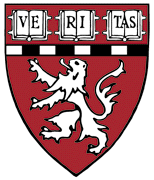|
| ||
 |
An Export Case Study Part Three |
See also:
Healthcare: An Export Case Study -- Part One
Healthcare: An Export Case Study -- Part Two
ince the costs of healthcare in the United States are perceived to be the highest in the world, how can American healthcare possibly offer an export opportunity? With Harvard being one of the most expensive universities on earth, isn't this export strategy rather preposterous?
S All transnational trade is founded upon the theory of comparative advantage. Harvard Medical International, Inc. (HMI) has identified a number of areas of comparative advantage -- and is also respectful of the many areas where US medical practice is obviously disadvantaged. Physicians with professional training and proficiency comparable to their US colleagues are common in the G-7 industrial nations and other developed nations around the globe; it would be presumptuous of an American physician to "show them how" to practice medicine. However, rigid acculturation frequently impedes the delivery of superior healthcare -- not because of inadequate professional skill -- but because of organizational and managerial barriers. Economic imperatives have forced the healthcare delivery system in the US to become much more flexible and less monolithic than other systems throughout the world.
An excellent example is the broad use of the team concept in US medicine in which the physician's skills can be sharply focused upon diagnoses and medical/surgical procedures while all of the extensive support needs can be entrusted to a well-trained medical services staff. A current illustration is an HMI contract with Eli Lilly & Co. in Brazil for the improved management of diabetic patients. A critical part of the management of diabetes is the education and monitoring (including self-monitoring) of the patient. An unacceptably high failure rate among diabetic patients was due, not to any inadequacies in the proficiencies of Brazilian physicians, but to their lack of time for the ongoing education and monitoring of their patients. Of course, neither do US physicians have time for these onerous tasks, but teams of nurse-educators have been trained through the Joslin Diabetes Center (a Harvard teaching affiliate) to provide this critical patient support. Thus, dramatically improved healthcare can be delivered more cost-effectively by introducing this team concept into cultures where it has been unrecognized.
Another example of comparative advantage is the introduction of specialized clinical programs within an indigenous healthcare organization. The most unambiguous advanced programs are represented by specialized clinical services such as ophthalmology, cardiac surgery, oncology, and minimally-invasive surgery. The scope of HMI's involvement in each project is determined wholly by the needs of the specific client, ranging from consultative services for existing organizational management to assuming the leadership role in the development and management of domestic healthcare facilities. HMI will assemble a task-specific team of faculty and support staff whose services may require only a few days up to engagements where completion may take more than a year. A prerequisite for a successful clinical program is the ability to work closely with the in-country healthcare partner.
Yet another example of comparative advantage is the introduction of health information technology services. Working with a technology partner, HMI has developed a comprehensive clinical information system embodying continuously-updated clinical knowledge harnessed with the resources from the Harvard Medical School and other world-renowned institutions. This information system is designed to fulfill the clinical, regulatory or cultural needs of client organizations, and encompasses functions such as recommended treatment protocols, critical pathways, outcomes research, medication information, consultation and treatment management via telemedicine. Andy Man, MBA, HMI's Managing Director and Executive Vice-President, observes, "HMI presents an unprecedented opportunity to develop a global clinical information system. With programs developing in 18 countries on five different continents, the need for a sophisticated communications infrastructure is real and immediate."
While being No. 1 has obvious advantages, it also carries special vulnerabilities. History is littered with No. 1s who have been blindsided -- who have been challenged and toppled. Harvard Medical International offers a noteworthy case of an institution recognizing situational changes and potential threats as well as the problems and opportunities presented by these shifts. HMI illustrates the purposeful development and deployment of its unique strengths to counter potential threats and to exploit emerging opportunities. HMI offers a preeminent paradigm of strategic response and initiative worthy of emulation by any enterprise.
Harvard Medical International, Inc.
One Renaissance Park
1135 Tremont Street
9th Floor, Suite 900
Boston, MA 02120Telephone: (617) 535-6400 -- FAX: (617) 535-6410
Email: Elizabeth_Sylvester@hms.harvard.edu
Your comments and suggestions for these pages are most welcome!
Thomas A. Faulhaber, Editor Email: editor@businessforum.com
Telephone: 617.232.6596 -- FAX: 617.232.6674
Brookline, Massachusetts 02446.2822 USAconsult@businessforum.com
URL: http://www.businessforum.com/hmi03.html
Revised: December 7, 2003 TAF
© Copyright 1997, 1999, 2001, 2003 Thomas A. Faulhaber / The Business Forum Online®, All Rights Reserved.